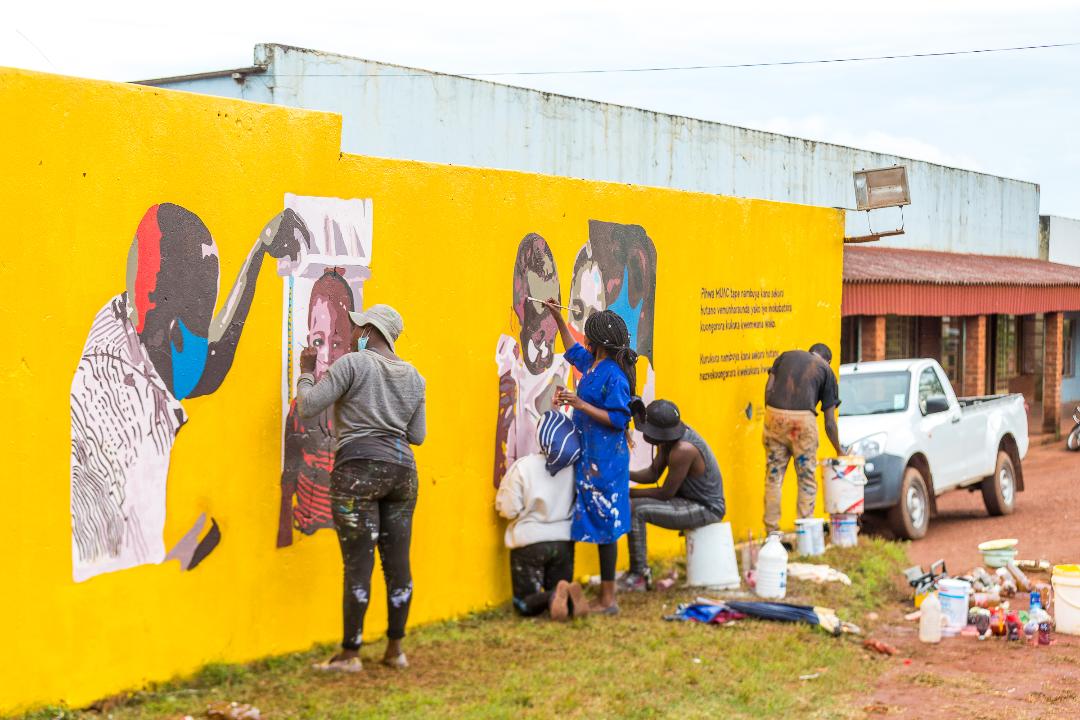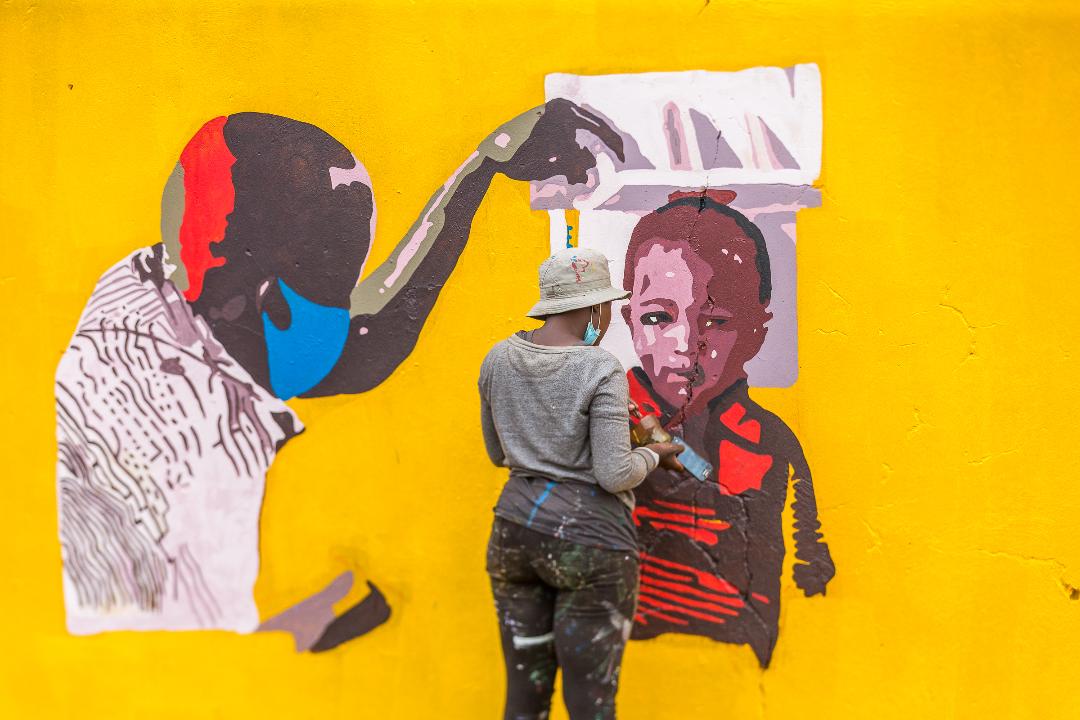CHIPINGE – With each fresh coat of paint, the old, brown garage wall comes to life. As the rust peels off, the painting of the mural becomes more vivid and Chako Shopping Centre in Zimbabwe’s eastern district of Chipinge is left abuzz.
Petronella Charlie, a 21-year-old upcoming artist and her peers use a combination of red, yellow, white, green and brown to imprint the images on the large wall. Curiosity turns into animated conversation as people try to figure out the meaning of the mural as it is painted.
“I think that is a hand of an older person directing a child to go fetch something,” said a man, as the crowd – practicing social distancing – watched on.
“No,” interjected a woman, holding a hoe after briefly abandoning weeding her maize field nearby. “Can’t you see the older person is wearing a mask, this is about Covid-19 prevention,” she said, adjusting her own mask.
“This is about children’s health, that’s why we have the child and the tape measures there,” chimed in another woman.
The murals act as collective thought spaces to create dialogue and raise awareness amongst mothers, caregivers, fathers and communities on promoting health messages including information on promoting maternal neonatal and child health services and promoting male participation in family health.
In one image, a caregiver is seen measuring a child’s height. In another, caregivers monitor the child using a Mid-Upper Arm Circumference (MUAC) tape to identify malnutrition. All adults in the mural are wearing masks as part of Covid-19 messaging.
The mural is one of more than 10 planned for Manicaland, Mashonaland East and Masvingo provinces. The three provinces were most affected by Cyclone Idai in 2019 and are now benefitting from the World Bank-funded Zimbabwe Idai Recovery Project (ZIRP).

Under ZIRP, UNICEF, collaborating with GOAL Zimbabwe has embarked on this outdoor media campaign using art murals promoting positive health behaviours in communities. The murals also incorporate Covid-19 messages as part of UNICEF’s integrated public health approach.
The outdoor media campaign is targeting nearly 2.5 million people, including 400,000 children and almost 200,000 pregnant and lactating women in the three predominantly rural provinces.
Local authorities such as Tsitsi Nyanhete, the Ministry of Health and Child Care District Health Promotion Officer for Chipinge district, are excited about the potential reach of the campaign.
“This is where people from all corners of the district converge. Everyone has to pass by these shops at some point, and I am sure this will catch their attention. Just by looking at the images they will understand the message. Images are also good in that even those who can’t read can still get the message. Very few people have access to radios or TVs and newspapers here, so this serves a very good purpose,” said Nyanhete.
At Chako shopping centre, the enthusiasm was easily noticeable. One woman said the mural reminded her of one she had seen earlier on malaria prevention. “Once you see the images, you never forget,” she said.
Others were fascinated by the combination of colour, images and words to engrain health messages in the community’s conscience.
“The colours are bright, you can’t miss it,” said a man buying fuel at an adjacent petrol station. He added, “Protecting the wall and spreading the message at the same time, what a clever way to save lives.”
















